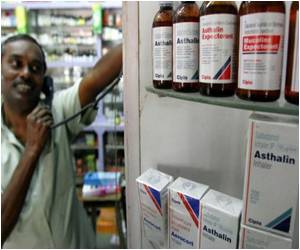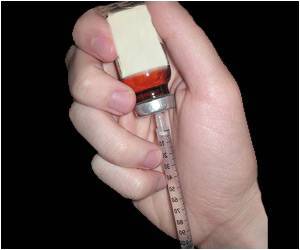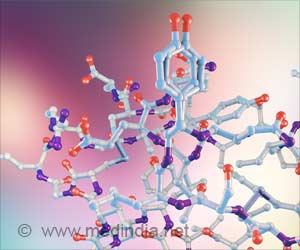Yusuf Hamied, chairman of the genetic drugs giant Cipla, who revolutionized AIDS treatment by slashing the cost of the drugs more than a decade ago, now does the same for cancer.

"I hope we'll cut prices of many more cancer drugs," he told AFP, adding that he wants to supply the cheaper drugs to Africa and elsewhere.
"Reducing the price of cancer drugs is a humanitarian move."
Hamied, 76, was pilloried by Western drug giants 11 years ago when he broke their monopoly by offering to supply life-saving triple therapy AIDS drug cocktails for under $1 a day -- one-thirtieth the price of the multinationals.
The firms branded him an intellectual property thief while he accused them of being "global serial killers" whose high prices were costing the lives of AIDS patients.
"What he did was path-breaking. It has been very important in saving lives, and what he is doing with cancer drugs is the same," said Leena Menghaney, a lawyer with humanitarian group Medecins sans Frontieres (Doctors Without Borders).
Advertisement
This meant firms could "reverse-engineer" or change methods used to make medicines and sell them at up to one-fiftieth of US prices.
But in 2005, India brought its law in line with World Trade Organization (WTO) rules recognising 20-year patents, pushing up the prices of newly launched drugs.
Cipla, India's fourth largest pharmaceutical company by sales, has been pressing the government to allow widespread use of "compulsory licences", which are permitted under WTO rules.
The licences allow companies to make existing life-saving drugs to sell in countries where they are otherwise priced out of reach.
India's first such licence was granted in March to Natco Pharma to produce a generic version of Bayer's blockbuster kidney cancer drug Nexavar, cutting the price from 28,000 rupees ($500) for a monthly dose to 6,840 rupees.
Ranjit Shahani, who heads the Organisation of Pharmaceutical Producers of India, says widespread compulsory licensing will jeopardise investment in innovative pharmaceuticals.
Bayer has said it will launch a legal challenge to the compulsory licence, and global drugmakers have vowed to oppose the spread of such legislation.
Hamied denied that his latest move was simply an attempt to boost his share in the oncology drugs market, insisting business must be linked to "social responsibility".
But he said like any other business his company, which has 23 cancer drugs, also wants higher sales.
"I owe it to my shareholders to be pragmatic," he said.
Born in Lithuania to an Indian Muslim father and a Lithuanian Jewish mother, Hamied was two months old when his parents fled Europe in the 1930s under the threat of Nazi Germany.
He was raised in Mumbai and studied for a doctorate in chemistry at Cambridge University in Britain before joining Cipla, which was founded by his father.
"My father never forced me but chemistry was my best subject," said Hamied, who became chairman of the company in 1989.
His bold step in offering cheap AIDS drugs turned out to be a smart business move.
Cipla is now the world's largest AIDS antiretroviral drugs supplier and the publicly-listed company is valued at nearly $5 billion, while business magazine Forbes puts Hamied's personal fortune at $1.75 billion.
But Hamied said poverty-racked India "can't afford to divide people into those who can afford life-saving drugs and those who can't".
"It needs a pragmatic policy," he said.
He believes the pharma giants should let emerging market drugmakers make copycat medicines in exchange for small royalties.
Some 95 percent of Western firms' profits come from regulated developed markets like Japan, Europe, America, so the pharmaceutical giants "really won't lose out", he said.
Even with the reduced price of generic drugs, such medicines are still beyond the reach of many of the world's poorest, conceded Hamied, who confesses he has his eye on his legacy.
"I want it to be said when I leave this world that 'he was not just a money-making machine,'" he said.
Source-AFP














